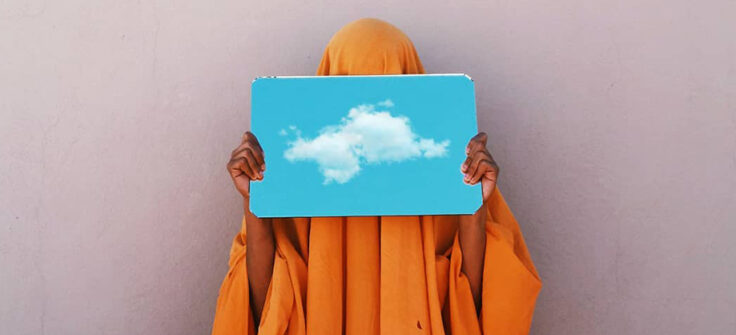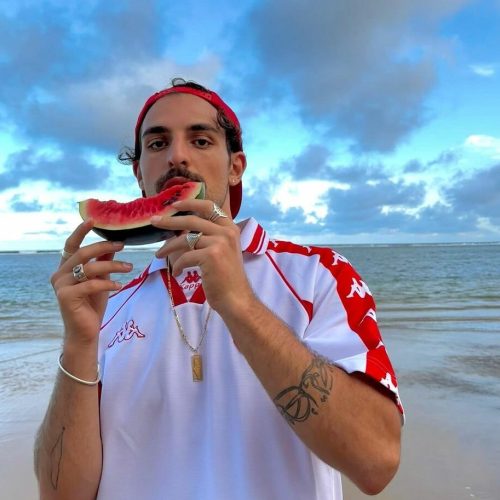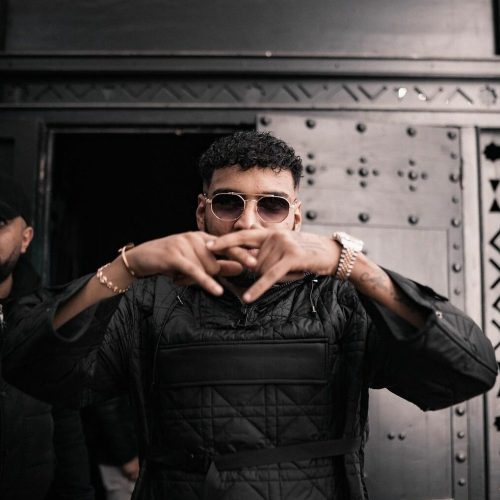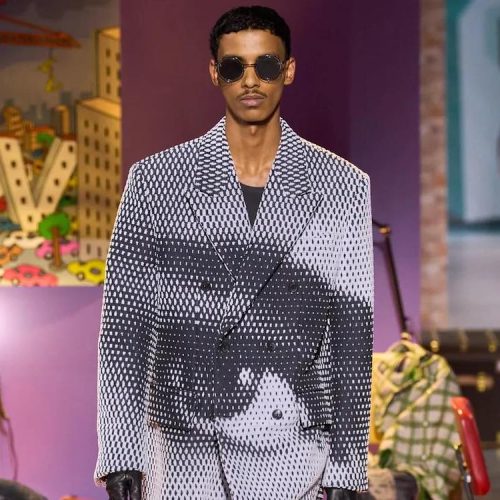In recent years—whether used to express political upheaval in the post-Arab spring countries, or driven by huge national investments like in the Gulf— contemporary art has been thriving in the region.
In the UAE, major art events, institutions and publications like Art Dubai, the Sharjah Biennale, the Louvre Abu Dhabi, the upcoming opening of the Guggenheim, and the launch of Vogue Arabia have all solidly placed the Middle East on the international art and fashion map, cementing the Gulf as its main cultural hub.
But despite institutionalised efforts, social and economic pressures still prevail, forcing young Arabs to pursue more “traditional” career paths. But for those who have decided to choose a career in the creative industries (whether that’s at home, or in the West) can all be united in the fact that it comes with it’s fair share of stress.
From freelancing and “working for exposure” on unpaid projects, or struggling to even create and survive because of restrictions or lack of infrastructure, many young creatives are subjected to mental health problems that aren’t given adequate exposure. And in the age of social media, the huge pressure to make it and brand does nothing but enhance these moments of pure anxiety.
MILLE caught up with six Arabs working in the creative fields to find out about the (sometimes harsh) reality of being a young creative in 2018.
Ismail Zaidy, 21, Moroccan, Photographer & Designer
“It was 2010 when I realised that I wanted to do something artistic. I attended a few artistic events and forums and it created this power and inspiration inside me that forced me to create things. I’ve been lucky to have my family supporting me, particularly since I won the prize of best Moroccan Instagram account. It got my mother really proud, and she’s the one who goes and buys materials for me without me asking her. It’s crazy how much she encourages me. She sometimes got annoyed when I use my sister and brother as models for my shoots, especially when they had to do their homework for instance.
It’s in relation to society that things are a bit more complex. I received harsh comments, such as “Why don’t you commit suicide instead of publishing these pictures?” but I try not to pay attention, because these comments don’t mean anything in comparison to all the love I’ve been receiving on my platform.
The biggest challenge to me is money. Turning a hobby into a career really isn’t easy. You can make a lot of money one day, and then nothing the other. It’s hard building relationships in this industry and trusting people. But I tell myself that hard work always pays off.”
Nessma Djouhri, 23, Algerian, Dubai-based, Visual Artist
“It was an easy decision for me to become an artist because I was so sure that it was what I wanted to do. But explaining this decision to my parents was not easy, especially since it meant travelling abroad. The issue was more that I had to leave home but for me at 18, it was that or nothing at all.
Now with a degree, I am anxious of course but I haven’t regretted my choice at all. I always feel that every market is saturated and competition exists everywhere so it’s a question of work ethic and consistency. Sometimes I raise the question of the comparative value of an artist’s success in the Middle East and in the West. It is easier to succeed in the region because we need more arts people but does this mean we are really challenging the benchmark? In the sense that would it equate to the same success in Europe? I’m not sure. I don’t want to think so euro-centrically or set the West as the ultimate reference but what they have that we don’t is much more experience and diversity in this field.
But social media is great for keeping track of the world. Also, it made it so much easier to get in touch with people. Instagram can almost function as a moodboard for any kind of practice, which is important because it allows the thinking process to always be running. The fact that artists share the work creates a dialogue within the virtual world that probably couldn’t have happened otherwise due to physical distances.”
Youcef Khelil, 25, Algerian, London-based, Musician
“From a very early age I always gravitated towards visual arts and music. But growing up my parents were very strict Salafi muslims, back then I could not imagine telling them I make music and I sing on stage. However with age they seem to be slightly more open to it. I think they respect my choices within reason but I don’t think they understand why I chose music.
I always feel judged especially when most of your family add you on social media. It’s always awkward seeing them when returning to Algeria to visit them. Some are more supportive than others but most are pretty judgmental. I’ve made my peace with it. Speaking for my parents I think it comes from a sincere place, they had an image of a son, which I guess I am not.
My biggest fear is not reaching my goals artistically. I think the failure that could come with not reaching certain goals hits young Arabs pretty hard. I always picture my parents telling me, “This is why we told you to be a Doctor”, it’s a constant challenge mentally. I feel like every artist I know has this image of stability in their respective industries, I myself am still trying to figure out what that would look like for me.
Having said that, I think that a lot of new and exciting things are happening for young Arabs. There seems to be a real spirit of collaboration and experimentation, I personally haven’t felt like my “Arabness” has held me back. But then again I grew up in perhaps the most culturally diverse city in the world.
I’ve essentially been discovering my own heritage and my own culture through Instagram. Artistically speaking, it’s a big stimulant for me; I was exposed to the incredible creative scene in Dubai and the neighbouring region through Instagram. Sometimes it can get toxic in that I begin to compare my lifestyle to other peoples and sometimes subliminally wish for things I don’t have, but I guess that’s human nature, we always want more, right?”
Mira Boutros, 26, Lebanese, Paris-based, Film producer/director
“I decided to work in film without really saying it to my parents, really because it was the only thing that made sense to me. But, I’m making my first steps in the industry working in production. The reality is that it’s more and more complicated putting my personal ambitions on the side and feeling like I’m stagnating and not really happy creatively speaking. It’s really annoying to think that all my energy serves a white man at the end of the day. I used to think I could do both: do my job and work on personal projects during my spare time. But I don’t have time at all, my job is a 24/7 emotional labour, and it’s really exhausting.
Also, it’s really stressful to feel like people self-market themselves on social media, but it’s an alter ego that they are putting out there. People always ask actresses how many followers they have during castings; it terrifies me. But anyway, I can’t wait to put money on the side and to build something that really resembles me, to feel that I’m growing and really adding something to the scene and culture, and not just be a technician.”
Gaby Habib, 20, Syrian, Dubai-based, Rapper
“I recorded my first track in December 2016. My mother has been pretty supportive, but my dad, he is supportive but he thinks it’s a joke so I’ve got to make him believe in me. They support my choice as long as I’m getting a degree on the side. A lot of people have told me, “you’ll never make it”, but they don’t have a dream or purpose in life, so it doesn’t matter, I just need to work hard and prove myself. I ask questions to myself sometimes and feel stressed out, but at the end of the day this is what I want in my life. It’s a challenging journey, that’s why I always tell myself to never get lost in the hype, make sure I know where I want to go and stay focused.”
Leila Benamar, 23, Tunisian, Fashion Designer
“It wasn’t easy to tell people I wanted to become a designer. In Tunisia, they don’t understand. People made fun of me saying I wanted to become a tailor. It’s still hard today and I think that schools don’t prepare you for the reality of things. Finding a job is almost impossible in this industry, and even when it comes to internship, it’s super competitive and people mentally and financially exploit you. It’s really bad. Also when you’re freelancing, you don’t have time to work on networking or social media, you’re just trying to meet deadlines and make enough money. The reality of it isn’t glamorous at all, it’s a hustle.”









